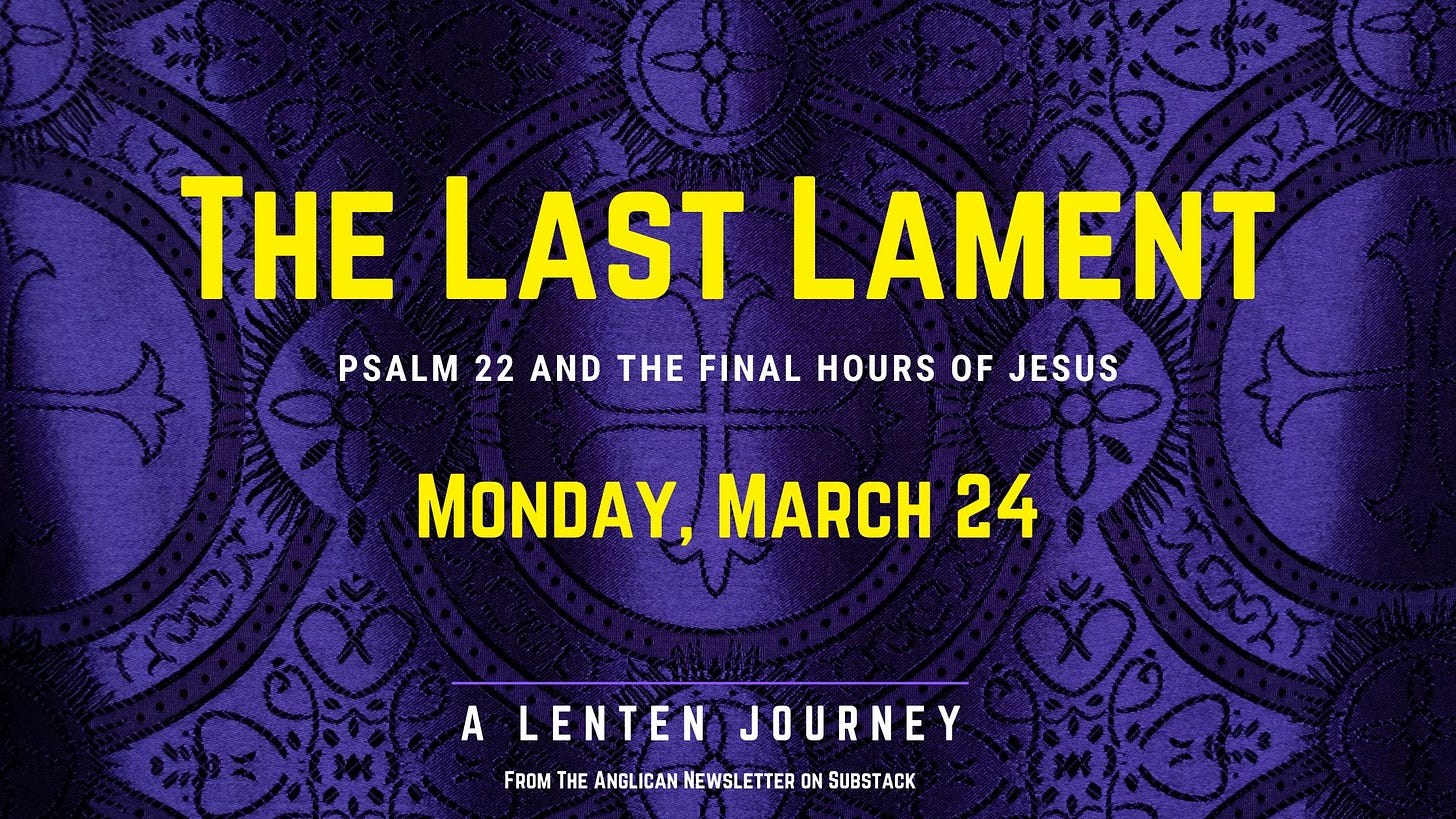Encircled by the Bulls of Bashan - Episode XIV: The Last Lament
Haters Gonna Hate and Bulls Gonna Bully
Thanks to the generosity of a single donor, every Free Subscriber can upgrade to a paid subscription at 30% off—just over $5/month for an entire year. This is a limited offer.
👆🏻👆🏻👆🏻👆🏻👆🏻👆🏻👆🏻
Recap: The Last Lament
Today is Monday. Let’s get reoriented in the Psalm.
In the next verse, twelve, Psalm 22 takes another shift. Jesus, reciting the 1,000-year-old composition by King David, has expressed his heartsick feeling of abandonment. Then, he noticed the people around him scoffing and laughing at him.
But now, In the few verses, the imagery of the Psalm turns to vicious animals: charging bulls, ravenous lions, and wild dogs. The intensity of his ordeal only worsens in the following eight verses, 12-20. Unpacking them will take the rest of the week.
This is where the mystery of Psalm 22 intensifies: What was David seeing or imagining as he wrote this Psalm 1000 years before Christ? The King of Israel describes with uncanny precision the effects of a method of torture that would not be invented until the Syrians did so 5-600 years later.
But for now, in the Psalm, the mounting tensions of the crowd, the violence perpetrated on our Savior, and the meanness of humanity are all piling up.
All hell is about to break loose.
Warning: The following verses are intended for mature audiences only. Discretion is advised.
Verse 12: Encircled by the Bulls of Bashan
“Many bulls encompass me; strong bulls of Bashan surround me.”
—Psalm 22:12
Verse 12:
The Psalm shifts into overdrive with disturbing and violent images, the first of which is a herd of bulls. These were not ordinary bulls. They were strong, and there were many.
The bulls of Bashan1 were fattened, powerful, and relentless. They were beasts bred for dominance, creatures that ruled the fields with their weight and strength. In the Psalm, they are not just animals. They are a symbol of something far worse—those who opposed Christ with force, arrogance, and unchecked authority.
Jesus knew these kinds of “bulls” well.
He saw them in the chief priests and elders, robed in their religious garments, their voices thick with mockery. He saw them in the Roman officials, drunk on power and pragmatism, sealing His fate with a wash of their hands. He saw them in the Palm Sunday mob, faces twisted with scorn, voices roaring for blood.
They encircled Him, not in sorrow, not in repentance, but in dominance. They had won, or so they thought. They thought they had the upper hand.
Bulls Gotta Bully
Today, we call them, well, bullies.
Bullies take advantage of weakness—perceived weakness—to step on others so they can feel taller, stronger, in charge, and more powerful.
I have been bullied before. I was a small Anglo kid raised in a US Border town in Southern Arizona. My lighter skin tone, my blond hair, my round face, my pudgy form, and my last name, Roseberry, were not ignored. They were weaponized. No aspect of my physical form was off-limits. Kids are cruel.
Has that happened to you?
Keep reading with a 7-day free trial
Subscribe to The Anglican to keep reading this post and get 7 days of free access to the full post archives.


